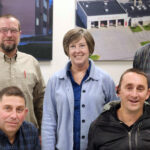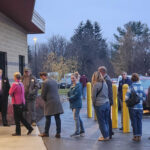Is there ever a time to stop working on your genealogy and declare it done? The answer is, it depends.
For those of us who have been deeply bitten by the genealogy virus we’ll probably be researching right up to the end of our lives, clutching a pedigree chart and moaning “one more ancestor, please.” When our direct line is back as far as it can go, we’ll work on all those collateral lines (aunts, uncles, cousins) until we have a large and never-completed family tree.
For others, the goal is to reach a certain point in their family tree. For some reason five is the magic number for many genealogists. “We’ve got our genealogy back five generations,” they’ll proudly proclaim, not realizing that some of us consider that recent history.
Regardless of your motive for searching for your ancestral heritage, the day may come when you don’t want to or are unable to continue. Perhaps you’ve hit what appears to be an unbreakable brick wall which has left you discouraged. For me a brick wall is a challenge. I may be a stubborn individual (my husband is nodding) though I choose to believe I’m persistent and determined. Sometimes persistence pays off. After more than 25 years of searching I think I have finally found the surname of one of my third great-grandmothers. Genealogy happy dance time!
I also find that I get intrigued by certain people in my tree and end up spending more time on them than I probably should. But they are irresistible and my love of mysteries and research takes over until I have literally milked all the information I can locate on that person and learned as much as I can of their life’s story.
Most of us begin researching our genealogy in our middle to senior years. Prior to that we’re busy getting an education, finding work, getting married or divorced, raising children, and just surviving the daily grind with no time for hours of research. The internet is making research easier, though I caution again that despite more information coming online there are still reservoirs of material hiding in repositories without a web presence. For example, some of those small historical societies in Maine hold treasures unknown.
There’s nothing wrong with setting a goal such as five generations and then quitting, especially if life intervenes in the way of family obligations or health issues. But don’t be surprised if that incurable virus called genealogy lurks inside you and rises again after you believe you’ve finished. Once we’ve been bitten, it never truly leaves us and there’s always just one more ancestor or relative nagging at you to continue to seek answers about their lives. The genealogy virus has no known cure, so resign yourself to your fate and have fun.
On Oct. 22, my husband and I will be speaking at the Sangerville Historical Society on the importance of history in genealogy. The meeting starts at 6:30 p.m. at the town office. I hope you can join us.
Nancy Battick is a Dover-Foxcroft native who has researched genealogy for over 30 years. She is past president of the Maine Genealogical Society, author of several genealogical articles and co-transcribed the Vital Records of Dover-Foxcroft. Nancy holds an MA in History from UMaine and lives in Dover-Focxroft with her husband, Jack, another avid genealogist. You can contact Nancy at nbattick@roadrunner.com.







